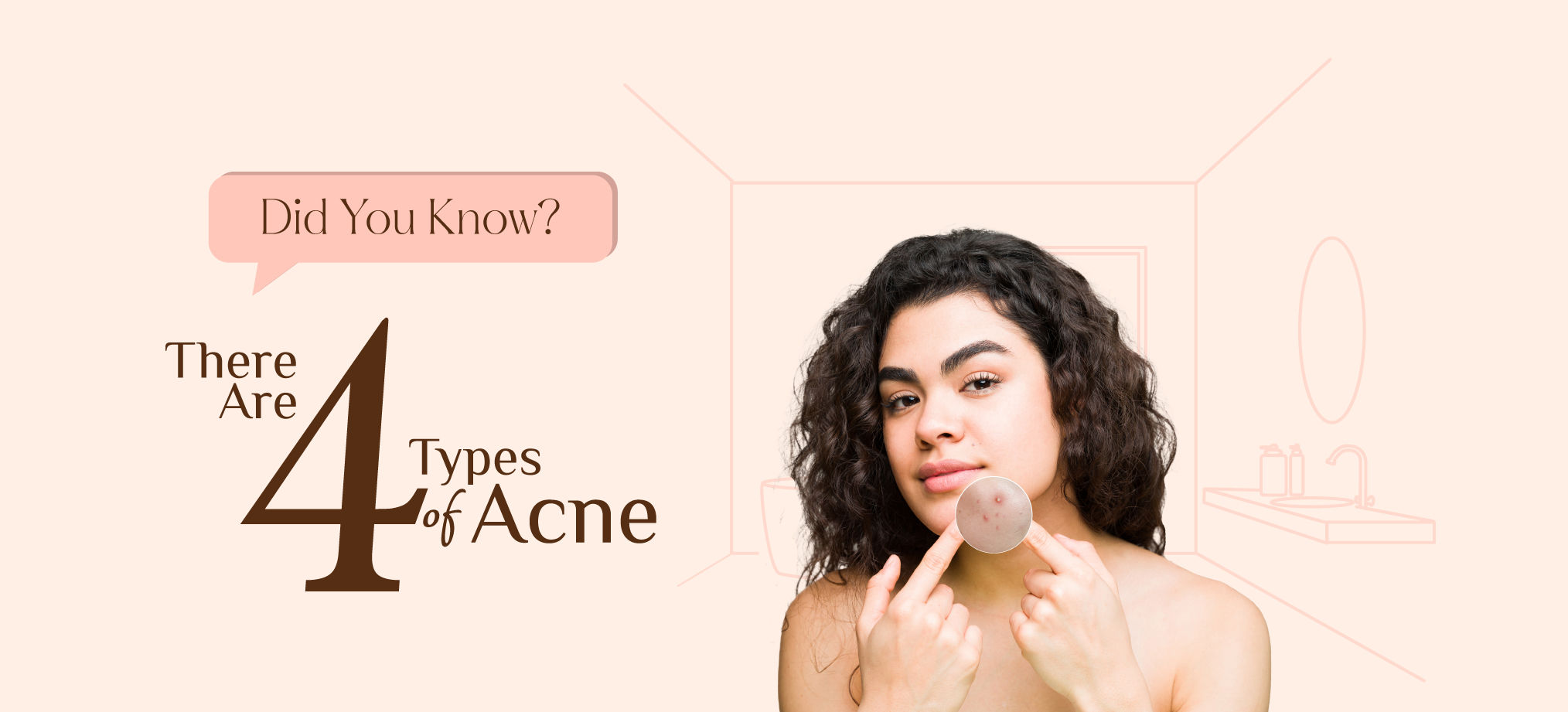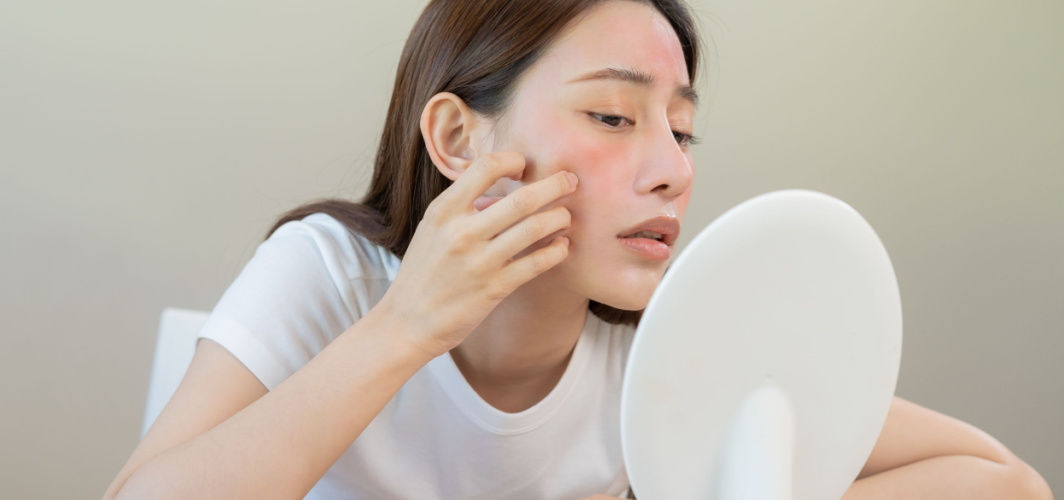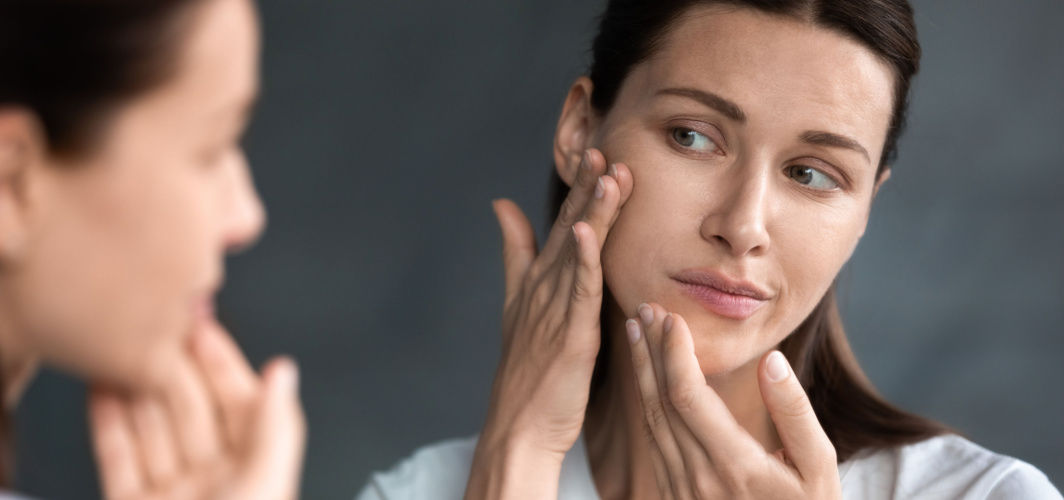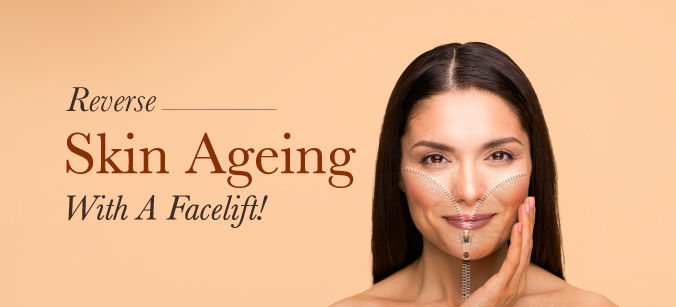Skin Care
Acne Guide 101: Which Kind Of Acne Are You Experiencing?
4 min read
By Apollo 24|7, Published on - 31 March 2023, Updated on - 11 September 2023
Share this article
0
6 likes

Approximately 85% of individuals between the ages of 12 and 25 experience acne, which includes blackheads, whiteheads and sometimes nasty, pus-filled pimples. Acne is a skin condition that arises from the obstruction of hair follicles present beneath the skin. These follicles are connected to sebaceous (oil) glands that produce sebum, an oil that moisturises the skin. When sebum and dead skin cells accumulate, they clog the pores, leading to the development of pimples or zits.
Although these outbreaks typically emerge on the face, they can also surface on the chest, back and shoulders. While we generalise them as acne, they have different types.
As per Dr Surajit Gorai, a dermatologist associated with Apollo 24|7, “the acne that you notice after the age of 25 is known as post-adolescent acne. In most cases, factors that result in acne include excessive oil production, clogged skin pores, inflammation, and bacterial growth. However, stress, hormonal imbalance, menstrual problems, comedogenic skin and hair-care products, and unhealthy dietary practices can also result in acne.”
Let us know more about it and the ways to prevent them.
Types Of Acne
Some of the common types of acne include:
- Fungal acne: Occurs due to the accumulation of yeast in the hair follicles, resulting in itchy and swollen bumps.
- Cystic acne: Causes deep, pus-filled pimples and nodules that may result in scars.
- Hormonal acne: This affects adults who produce too much sebum due to hormonal imbalance, leading to clogged pores and breakouts.
- Nodular acne: A severe form of acne that causes both pimples on the surface of your skin and painful, tender lumps underneath it. This type of acne can also lead to permanent skin damage in the form of scarring.
What Are The Symptoms Of Acne?
Acne can present with a variety of symptoms. These include:
1. Whiteheads: Whiteheads are small bumps on the skin's surface that develop when hair follicles become obstructed with oil and dead skin cells.
2. Blackheads: Blackheads are small, dark spots that arise when hair follicles become obstructed with oil and dead skin cells, and the top of the plug darkens due to oxidation.
3. Papules: Papules are small, raised, red bumps on the skin that form when hair follicles become inflamed due to bacterial infection.
4. Pustules: Pustules are quite similar to papules, but they contain pus. Pustules appear when hair follicles become inflamed and white blood cells start building up in the follicle.
5. Cysts: Cysts are large, painful bumps that occur deep within the skin. They grow further when hair follicles get clogged with oil and dead skin cells, followed by a bacterial infection.
Acne Treatment
There are several treatment options for acne, depending on the severity and type. These include:
- Topical treatments: These include the use of medicated antibiotics, antibacterial and antifungal creams, gels, and lotions that you apply directly to your skin.
- Oral medications: Oral medicines often include antibiotics, progesterone pills, and isotretinoin, which help treat acne.
- Chemical peels: This procedure involves applying a chemical solution to the skin to remove the dead skin cells and unclog pores.
- Light therapy: This treatment uses different types of light to eliminate the microorganism responsible for acne.
- Extraction: This procedure involves a dermatologist using a tool to extract blackheads and whiteheads.
How To Prevent Acne?
Here are some prevention tips to keep your skin clear and healthy:
- Keep your skin clean: Wash your face twice daily with a gentle cleanser to remove dirt, oil, and makeup.
- Refrain from touching your face: Acne-causing bacteria and oil can be transferred to your face through your hands. Therefore, do not touch your face unless you clean them with soap and water.
- Use non-comedogenic products: Use products labelled "non-comedogenic," as they are less likely to clog pores.
- Eat a healthy diet: Eat a diet rich in fruits, vegetables, and whole grains, and avoid sugary and fatty foods.
- Manage stress: Stress can cause hormonal imbalances that can lead to acne. So, try to manage stress through exercise, meditation, or other relaxation techniques.
Sometimes, over-the-counter skin care products aren't enough to deal with stubborn acne and require prescription medications. If you are dealing with recurring, painful acne,
Medically reviewed by Dr Sonia Bhatt.
Skin Care
Leave Comment
Recommended for you

Skin Care
Rosacea Acne: Definition, Causes, Triggers, Symptoms, Treatments & Prevention
Discover rosacea acne, a chronic skin condition, along with its causes, triggers, symptoms, treatments, and prevention strategies.

Skin Care
Worried About Premature Ageing of the Skin? Here’s What to Avoid!
Are you worried that your skin might be ageing earlier than expected? Don’t know why your skin is wrinkling and sagging? Read on to find out about the most common causes of premature ageing of the skin.

Skin Care
Reverse Skin Ageing With A Facelift! Read Everything About It
Facelifts are a safe way of rejuvenating your skin. It can solve several skin ageing signs such as removing sagging skin from your face and removing deep folds and crease lines.
Subscribe
Sign up for our free Health Library Daily Newsletter
Get doctor-approved health tips, news, and more.
Recommended for you

Skin Care
Rosacea Acne: Definition, Causes, Triggers, Symptoms, Treatments & Prevention
Discover rosacea acne, a chronic skin condition, along with its causes, triggers, symptoms, treatments, and prevention strategies.

Skin Care
Worried About Premature Ageing of the Skin? Here’s What to Avoid!
Are you worried that your skin might be ageing earlier than expected? Don’t know why your skin is wrinkling and sagging? Read on to find out about the most common causes of premature ageing of the skin.

Skin Care
Reverse Skin Ageing With A Facelift! Read Everything About It
Facelifts are a safe way of rejuvenating your skin. It can solve several skin ageing signs such as removing sagging skin from your face and removing deep folds and crease lines.
